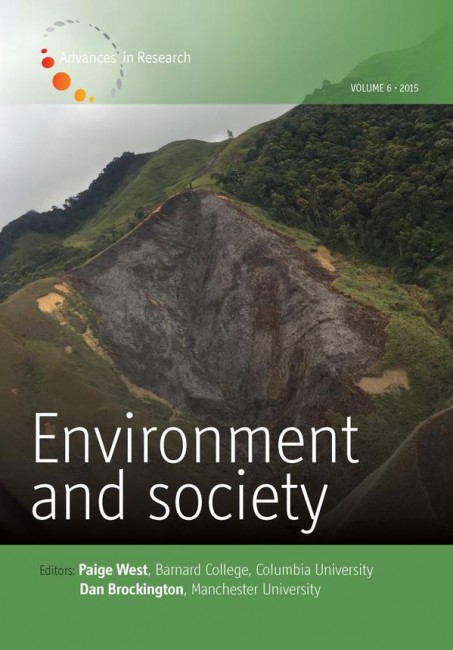
Environment and Society Volume 6 is now available from Berghahn Journals! To access all of the articles of this issue that specifically focuses on the Anthropocene, visit the journal’s website here. The following is an excerpt from Amelia Moore’s introduction to this issue, available as a free PDF download:
The Anthropocene is everywhere in academia. There are Anthropocene journals, Anthropocene courses, Anthropocene conferences, Anthropocene panels, Anthropocene podcasts, and more. It is very safe to say that the Anthropocene is having a moment. But is this just a case of fifteen minutes of fame, name recognition, and bandwagon style publishing? The authors in this issue of ARES think not, and we would like to help lend a critical sensibility to the anthropological consideration of the concept and its dissemination.
We recognize that the Anthropocene is an epoch in formation. As a category and as a concept, the term inspires fear, revelations, skepticism, and all manner of predictions and projects. In other words, the Anthropocene is as generative as it is contested. And as global anthropogenic change becomes an increasingly defining feature of contemporary life, the authors in this issue of ARES look beyond the kneejerk censure of the Anthropocene as an academic fad in order to locate the social and political significance of the idea while it congeals around the world.

